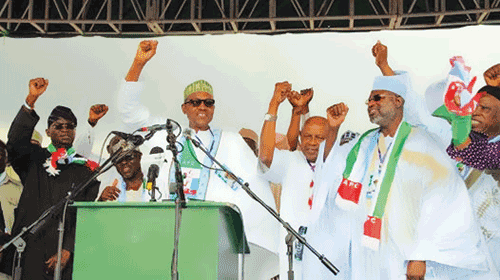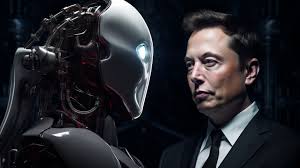For Muhammadu Buhari, the March 28 elections may be the best chance to regain the power he held in the 1980s, and has tried repeatedly to get back ever since.
As a major general in the army, Buhari served as Nigeria’s ruler in 1984 and 1985, after a group of military officers overthrew democratically elected President Shehu Shagari.
 Buhari only lasted 20 months in power before being overthrown himself. But unlike many deposed military rulers in Africa or elsewhere, he has enjoyed a long afterlife in politics, especially since Nigeria returned to democracy in 1999.
Buhari only lasted 20 months in power before being overthrown himself. But unlike many deposed military rulers in Africa or elsewhere, he has enjoyed a long afterlife in politics, especially since Nigeria returned to democracy in 1999.
This year marks his fourth run for the presidency. He finished a distant second three previous times, including a 2011 loss to the man he now seeks to unseat, Goodluck Jonathan. That loss sparked allegations of fraud, setting off protests and sectarian violence in the north that killed about 800 people.
This year, observers think Buhari has a chance to win, mainly because of the public’s weariness with the bloody Boko Haram insurgency in the northeast. Buhari has hammered Jonathan on the issue, saying his policies have been ineffective against the radical Islamist group, whose uprising is now in its sixth year.
Buhari has, however, praised the armed forces for their recent gains against the militants.
For the first time in an election campaign, Buhari has the backing of a unified opposition. Nine parties joined forces last year to create the All Progressives Congress, which attracted several powerful state governors and chose the 72-year-old Buhari as its presidential candidate.
The congress is calling for an end to the rule of Jonathan’s People’s Democratic Party, a 16-year period that Buhari has called a disaster.
The former officer has said he will focus on wiping out Nigeria’s chronic high-level corruption and will give more governmental support to farmers and factories with an eye toward job creation.
Buhari, who is Muslim, is most popular in the Muslim-majority north, where he drew most of his support in the 2011 election.
That fact could complicate his election chances, as it is unclear whether voting will happen in three northeastern states where troops have been fighting Boko Haram.













